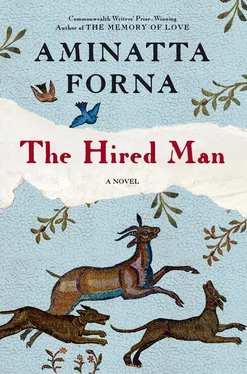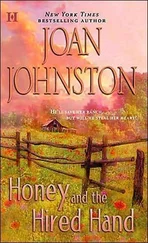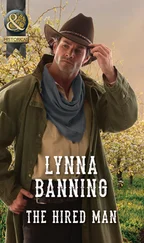The door of the family’s house stands open, a downstairs window has been broken. The television has gone already, and of course the rug. Over the weeks that follow the remainder of the family’s belongings disappear into the homes of neighbours and former friends. I recognise their curtains hanging in the window of the deputy karate coach’s house two streets away. Somebody drags a mattress from one of the upper floors, gives up and abandons it in the doorway. Someone else sets fire to it. A sticky little turd appears upon the scorched ticking. Stray cats move in and take over from the family’s pet cat: the toms make mincemeat of him.
A meeting at the Crisis HQ, months, it seems to us, after our part of the crisis is over. Those of us who were in the territorials turn up at the Mayor’s office to be told we’re not needed and so we go away again. Fabjan though is invited, I pass him on his way in. The man with pale eyebrows and his cohorts are there too. I am on my way to the Zodijak when I see eight or so of the lads appear, the ones I told you about, who tinker with the engines of their motorbikes in the car park behind the supermarket and hang out by the pinball machine in the Zodijak. They’re a bit like we used to be though Andro, Goran, Miro and I are thirty now. These guys are ten years younger. They look up to Fabjan. The meeting lasts three hours, I know because even though I have things to do I wait in the Zodijak the whole time and I’m there when Fabjan comes in and goes straight to the back room. A few minutes later the pinball boys turn up, only this time they don’t stand around the pinball machine with their hands in their pockets, taking turns, comparing scores and sharing beers. No, this time they go straight to the bar where a few lean with their backs to the counter, facing the room and the street with a new assurance. When Fabjan comes out of the back room he pours drinks for the whole lot of them. In the days that follow I see them in the Zodijak a lot. Suddenly there’s money about.
The National Guard leave. The boys from the Zodijak take over the checkpoints. There’s one on the road between Gost and my house. The guys never check my ID, they always wave me through. Javor stops coming into town even the few times he did.
Days pass, not much changes. On roofs throughout the town the red of the new tiles stands out alongside the old faded red. The post starts again, letters from relatives in the city and overseas, some containing money. There are no new death notices, except of the very elderly, for whose hearts the whole thing had been too much.
The official start of boar hunting season. Usually that means visitors, men arriving from the city, groups of them, who stay for the weekend. This year that doesn’t happen. On one of those October days Anka and I go up to the hills. We are alone. During the conversation on the way up to the pine forest she frowns and chooses her words carefully, as if she’s worried about their effect, as if this thing, whatever it is that she’s afraid of, which right now is made of smoke and dust, will crystallise and harden by being put into words, be made real, like an illness or a death pronounced by a doctor. There will be no going back. She chooses her phrases carefully: ‘just a matter of time’, and ‘for now’, and ‘when things get back to normal’. A lot of people in Gost talk this way, if they talk about what’s happening at all, but Anka does it because she’s afraid she and Javor might need to leave, like the baker and his daughters, and she doesn’t want to leave Gost because like all of us, like Javor, this town, these hills, the ravine and the pine forest are all she knows.
Later, alone on my bed, I think of Javor’s cousin coming into the Zodijak on that day, which is now some weeks ago. I think of the sign on the door of the baker’s, the hleb crossed out and replaced, in thick black marker pen, with kruh , how that word kruh , written in that way, takes on the weight of an obscenity. I think of the thieving couple and the baker’s rug, of how the man stared me down, daring me to challenge him and call him a thief. I don’t know what it all means. I think about the pattern on the round rug on the baker’s floor and how I used to stare at it as I sat in the front room of the baker’s house, so that first the black and then the red stood to the fore, how shapes appeared and then receded, and how (if you stared for a very long time) the lines and dots seemed to shimmer and dissolve. Familiar patterns faded away, new patterns appeared where none existed before, only to disappear in the blink of an eye.
For three hours that afternoon all of this is forgotten as we hunt together for the first time since we were children. The air is warm, the trees heavy with fruit. Kos is with us and she picks up a scent almost immediately. By the time we reach the trees we’ve stopped talking, to give Kos a chance of course, and also because the conversation, so full of pitfalls and quicksand, frightens us both. So we let Kos take the lead.
Anka carries the smaller of the two rifles. I carry the one I once used to hunt soldiers of the National Army only a few months before. Anka is kneeling and I stand behind her. Kos has led us to a small bachelor herd of no more than ten. They are playing, making practice charges and trying to lock antlers. In a few years they’ll be fighting for the herd and sometimes their lives. I remember once, out hunting with my father and his friends, we came across a big bull dragging the carcass of a second bull, almost as large as he was. Their antlers had locked during a fight, the dead buck’s neck was twisted and broken; his opponent, unable to free himself, was faced with his own death. We watched as he pushed, dragged and tossed the lifeless body, finally standing still in exhausted bewilderment. The bullet, when it came from one of our group (it may even have been my father), must have been almost welcome.
Now there’s a young buck whose antlers don’t amount to much, no spread to the branches, each antler little more than a couple of spikes, the longer of the pair about fifty centimetres, enough to do damage without victory. In the long run he is more use to us than to the herd. I keep an eye on him and, when I look down at Anka, I see she’s doing the same, waiting for him to come into range. Slowly she raises the rifle to her shoulder, she waits another minute, closes her right eye (I remember that little peculiarity of hers) and takes the shot. She is as good as she ever was, and briefly I wonder in that moment if she had been a boy, what would have happened then? Would Krešimir still have been Vinka’s favourite?
We dress the buck there and then. Anka shares the work, pulling on the rope to hoist the carcass, which weighs about as much as she does. Unhesitatingly she draws her knife and slits the animal open from breastbone to belly. She is enjoying it, the physical work, the freedom which follows the months of confinement. With the back of her hand she wipes her brow and leaves a faint smear of blood above an eyebrow. She is smiling. I bury the spilled guts and wrap the heart and liver for Kos, cut the animal down and carry it on my shoulder. The three of us head back down the hill.
Anka sings.
From the blue house I head up to my mother’s house, carrying a haunch. Tonight we eat. My mother is pleased and begins to search her larder for what she might cook with the meat. Tomorrow, I say, as I kiss her. Tomorrow all of us, here for dinner. Me, you, Danica, Luka. She reaches up and places a hand on each cheek, kisses my forehead. I am not tall, but I feel tall next to her, who was never tall and now without my father seems smaller still. Her hands smell of roses and when I leave I carry the scent with me, in my nostrils, on the skin of my face. In the moment I decide to go into town and so I turn right and, as I cross the bridge into Gost, I see a man I recognise, he is an old colleague of my father’s. I remember him from my visits to the post office and also from the funeral. He’s a stocky man with muscular forearms and the rolling gait of the bandy-legged. He’s walking along the road, quite fast, rolling a little which might be his legs or might be because he has been drinking, because behind him along the pavement there is a trail of letters leading back to town. The strange thing is that he doesn’t seem to know they’re there, or maybe he just doesn’t care. He’s walking along with his head tilted back; in his arms are bundles of letters, his pockets are stuffed with letters, his trouser pocket and the pockets of his post office uniform jacket, too. Every now and again one or several of the letters escapes at a time, adding to the paper trail behind him.
Читать дальше












